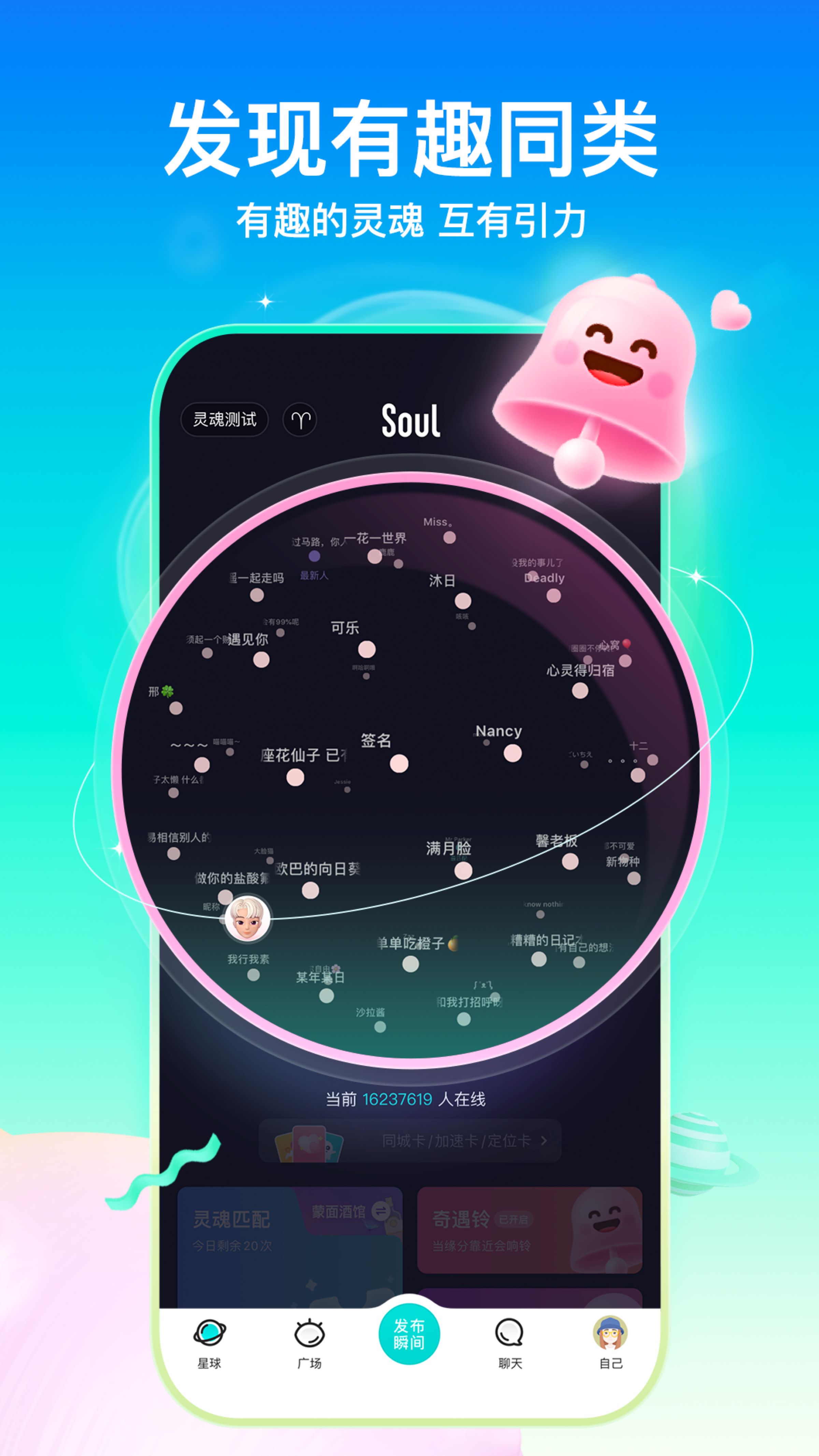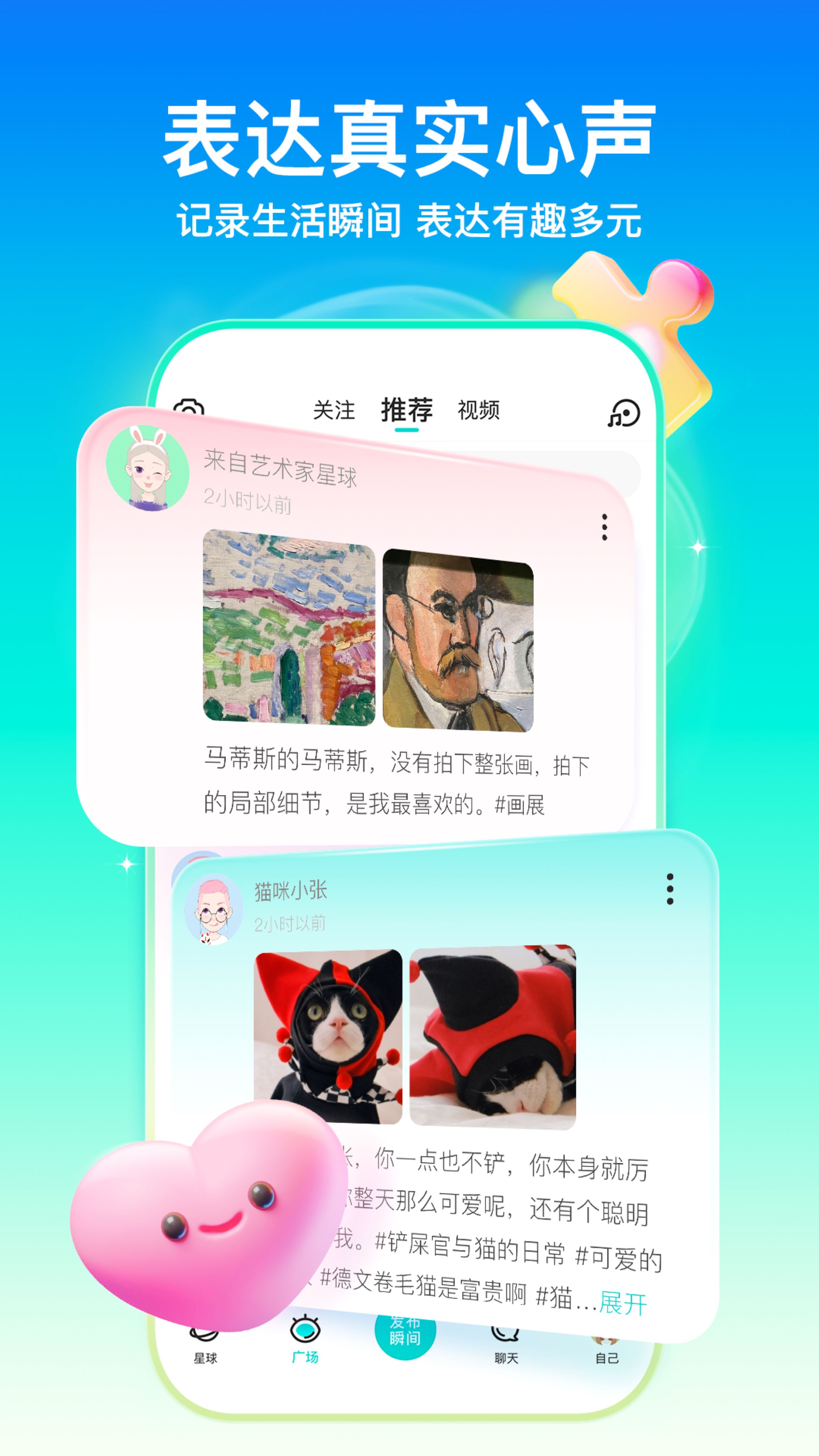In China, the social app Soul has become a true phenomenon. Prioritizing anonymity and highly favored for expressing one's thoughts and emotions, this chat application serves as a powerful tool for luxury brands seeking to better understand the Chinese Gen Z on a quest for new purpose.
Asia, particularly China, is asserting itself as the epicenter of the global luxury market. The younger generations, whose spending is increasing three times faster than other groups, are redefining luxury values and the expanded meaning of brands. At the heart of this transformation, Generation Z now prioritizes well-being and a lifestyle more focused on humanity. Innovative platforms like Soul allow this generation to express moods and connect with others who share similar interests and are key spaces to understand Gen Z, capturing their values and expectations. With heightened awareness and unprecedented digital connectivity, individuals aged 18 to 35 aspire to experiences that reflect their personal values and authenticity, more than mere luxury products. Their approach to luxury emphasizes sustainability, individuality, and innovation. This digital connectivity enables them to develop a unique language and values, shaping a new 'Zeitgeist.'
The trends of this generation are significantly influenced by their engagement on platforms such as 小红书 (Little Red Book), 抖音 (Chinese TikTok), and a rising star among young Chinese, the Soul App – also known as Soul (a blend of Tinder and Facebook, but with a more complex interface and matching algorithm).
Soul, immensely popular among Gen Z and Alpha, provides a space to express and share experiences, emotions, and interests while preserving anonymity. It is on this platform that one discovers keywords about social trends in 2024. Among the trending terms, 'lazy health' (懒系健康) stands out, reflecting a trend towards accessible and effortless well-being, a luxury that favors simplicity and efficiency. Another sought-after keyword is 'anti-stress' or a return to spirituality and inner peace fostering calm, 'stress-relief worship' (释压崇拜). Beyond physical and mental health, young individuals question the value of things, integrating a pragmatic approach to consumption: the 'value-for-money lifestyle' (性价比生活), where value and quality surpass brand prestige, indicating a shift towards a more conscious and thoughtful luxury. However, Soul goes beyond being a mere showcase of trends; it encourages more authentic and meaningful interactions by providing a space that reinvents social connections.
Authentic and anonymous connections
The Soul application, developed by Shanghai Soulgate Technology Co., is revolutionizing the social media sphere by offering a unique experience that combines common interests and anonymity. Unlike apps like Tinder, Soul focuses on fostering authentic connections beyond romantic encounters. The app does not feature a profile photo function; users, or 'Soulers,' create avatars to represent their virtual personalities, facilitating pressure-free interactions.
In December 2022, Soul recorded 1.66 billion RMB (216 million euros) in revenue and had nearly 30 million monthly active users, with 80% belonging to the Chinese Gen Z. This app has gained significance in the lives of the youth since its inception. To create a user account, Soul first administers a personality test and then invites users to choose their areas of interest, placing them in a community called their 'corresponding galaxy.' The app assigns a spiritual gift and a behavior category to each user in their galaxy, listing the four main personality traits (similar to the result of the personality test based on the works of Isabel Briggs Myers, Katharine Cook Briggs, and Carl Gustave Jung). This helps the platform personalize match recommendations for those seeking a romantic partner using artificial intelligence. Through gamified features and diverse content, users can share their daily lives and express their emotions creatively and anonymously.
The platform's business model primarily relies on value-added services like avatars and virtual gifts. This proves to be an ultra-effective means for brands to develop interactive virtual experiences and campaigns. For example, Chevrolet and Starbucks have exploited this potential by creating personalized avatars and organizing engaging events. At the Chengdu Auto Show in 2022, Chevrolet set up a booth with Soul where visitors could design avatars based on Chevrolet's intellectual property and print them for their physical entry cards.



To actively engage Generation Z, which favors direct involvement over passive consumption, Soul is the new royal road. The e-commerce platform JD.com launched a campaign on Soul titled "100 Questions to Pet Owners" (养宠100问) in 2022, encouraging users to share their experiences with their pets. On Soul Square - a feature similar to Moments on WeChat or the 'wall' on Facebook - the brand had planned interactive sessions with experts to answer questions live. The campaign achieved notable success, engaging around 1.89 million people and reaching a total of 130 million individuals (source: Sina News), reinforcing JD.com's reputation as a preferred destination for pet-related needs. As a bonus, the platform used its recommendation system to connect animal lovers, fostering connections between individuals.
Thanks to new applications increasingly focused on interaction and sharing emotions, Gen Z is gradually revealing its secrets. The data war is only just beginning.
Partager l'article
Continuez votre lecture
Chinese Golden Youth Inspires Luxury to Encompass its Cultural Heritage
The affluent Chinese youth, characterized by their dual traditional and globalized identities, are increasingly seeking luxury products that resonate with their cultural heritage without compromising quality or authenticity. They now aspire to find key elements of their culture in the products they consume.
By Fanny Tang
The Ultra-Wealthy Chinese Youth Redefine Their Perception of Luxury
The privileged youth of China now perceive luxury in a more nuanced manner. The ultra-wealthy under the age of 40 approach wealth management, investment, and heritage preservation differently from their predecessors.
By Fanny Tang
S'inscrire
Newsletter
Soyez prévenu·e des dernières publications et analyses.